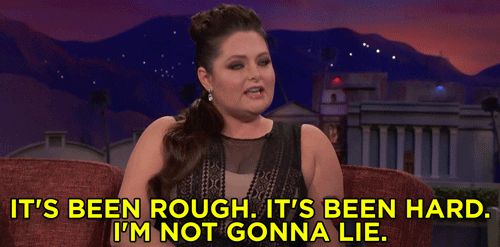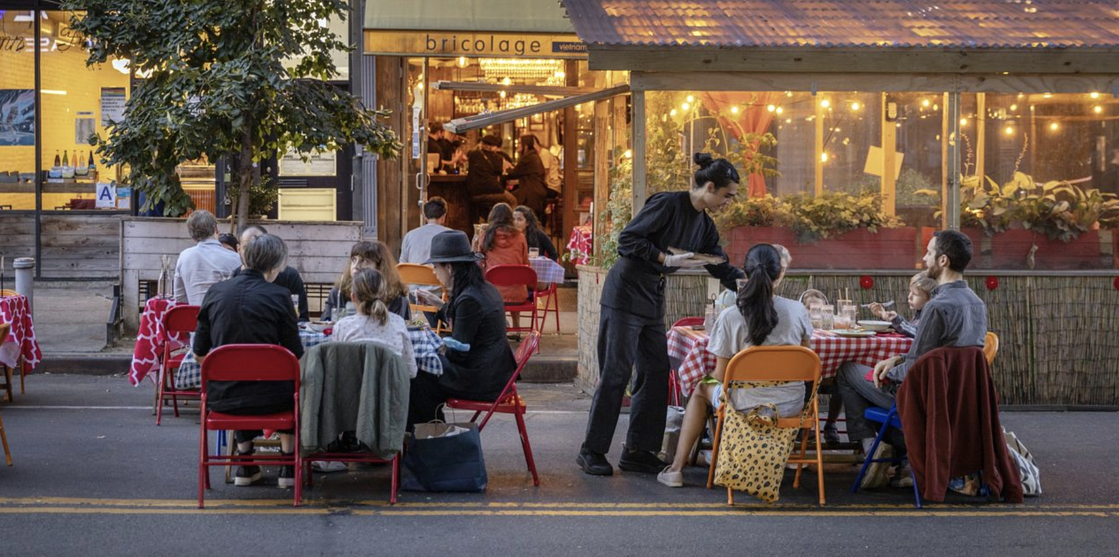Out Of Stock 😧
October 13, 2021
REDEFINE IMPOSSIBLE
The Iron Cowboy’s Playbook for achieving any goal
Less than 1% of the world's population has completed a 26.2-mile marathon run. Even fewer have completed an IRONMAN-distance triathlon, which adds a 2.4-mile swim and 112-mile bike ride on top of the run.
And only one person has run 101 of these triathlons in 101 consecutive days. Meet James "The Iron Cowboy" Lawrence.

In addition to his latest "Conquer 100" challenge, James has earned 2 world records for running the most IRONMAN triathlons completed in one year (30 and 50, respectively). And he knows exactly what it takes to achieve his most audacious goals.
Two weeks ago, a clean-shaven, well-rested James sat down with us at Playbook 2021. There, he shared his playbook for achieving the impossible. (Spoiler: his strategies work in business, life, and anywhere else you set goals).
Here's what we took away from the conversation:
- Believe in your convictions. The underlying thought that “I can’t do that” or “but it will be painful” is what keeps most of us from setting scary big goals. But, per James, “The only limit to achieving greatness is telling yourself ‘no.'”
- Aim for a B+ average. Most people aim for straight-A perfection, only to fail somewhere along the way. When they do, they latch onto that first failure because it’s impossible to come back from an F and still get straight A’s.
- No one achieves greatness alone. When reflecting on his achievements, James explains that “I’m not The Iron Cowboy. We, my team, are The Iron Cowboy. I’m just the face of the whole thing.”
👉 Get all 6 tried and true strategies.
OUT OF STOCK
If your biz needs these items, buy them... like now!
The global supply chain just can't catch a break. First, COVID forced factories to shut down for months. Then, the Evergiven got stuck in the Suez Canal. And now, China's energy crisis is wreaking new havoc.

To paint a picture, China accounts for nearly a third of global production. And roughly 70% of the nation’s electricity is generated from coal. But there’s a huge coal shortage in China right now.
Because of this, 60+ major Chinese manufacturers are either shutting down or curtailing production because they can’t power their plants. Meaning, some products (including many holiday essentials) will be in short supply this season.
This includes:
- Carbonated beverages. CO2 supplies are projected to be under pressure (get it?) with fertilizer plants shut down. But what’s a holiday office party without bubbly refreshments?
- Electronics. Several major Apple suppliers have curtailed production. Meaning, fewer MacBooks and iPhones will be available for your new hires that need them.
- Metals, chemicals, and cement-related items. All of these goods are energy-intensive to create. And with energy consumption being curbed, they’ll likely get hit the hardest.
- Holiday decorations. We know - October is way too early to buy holiday swag. But if you want your office decked out, you might have to make an exception this year.
👉 See the full list. (Don't worry - toilet paper isn't on the list this year. 😉)
TL;DR
This week’s highlight reel

- Tiger King, who? Squid Game is on track to be the biggest hit in Netflix history, ranking #1 in 90 countries. And it will likely be the Halloween costume of the season as white Vans sales jump 7,800% since the show’s premiere.
- No address required. Prime members can now send surprise gifts to friends, family, or anyone with Amazon using just a phone number or email.
- Unexpected turbulence. Business travel used to account for 75% of airline profits. And with it likely gone for good, The Hustle predicts cheap economy airfare might go with it.
- Ladder up. Insurtech startup Ladder raises $100M "to bring life insurance into the modern digital age" with dynamic coverage and a self-serve app.
A BIG BILL
Restaurants spend thousands to upgrade outdoor dining
Outdoor dining helped many restaurants weather the pandemic last winter.
Restaurant owners worldwide set up impromptu sidewalk seating. Many of which featured space heaters, tailgating tents, and cheap patio furniture. And with people cooped up, it was a hit among diners - even in near-freezing temperatures.

But these haphazard arrangements left staff members scrambling to change propane tanks (sometimes 10+ times a night), customers complaining they were cold, and structures destroyed by nearby traffic.
At the time, these related headaches seemed worth it. For areas with indoor dining restrictions, this kept doors open and tables filled. For areas with indoor dining, this nearly doubled seating capacity in turbulent times.
Since then, many cities have lifted indoor dining restrictions for proof of vaccination and continued contact tracing. But 80% of diners said they now favor permanent outdoor eating options, even with winter on the way. But this widespread approval comes with high expectations.
"Just because you're outside doesn't mean you need to be sitting in a plastic chair," one New York-based diner told the WSJ.
Because of this, many restaurants are doubling down on their outdoor dining experience with:
- Warmer uniforms and tablets to make the staffs' lives easier
- Permanent structures, complete with holiday decor and infrared heaters
- Easy-to-launder blankets and warm menu offerings like soup for diners

Outdoor dining options that cost a few hundred dollars to throw together last year cost several thousand to upgrade. And with many independent restaurants already operating on a thin margin, it might not be worth eating the investment.
Even if a restaurant owner can afford the bill, it's still a risk given supply chain shortages, staffing struggles, and the delta variant in full swing. Not to mention outdoor dining permits that are difficult to get, depending on your location.
Luckily, affording these added costs is no longer a "make or break" business decision. For most eateries, upgrading their outdoor experience will offer an added luxury for patrons rather than be a necessity to get people in the door.




